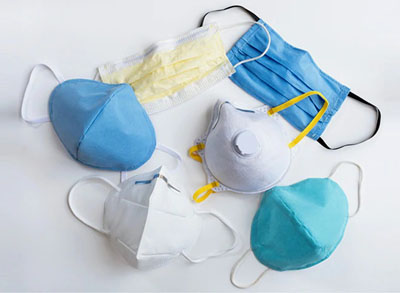by WorldTribune Staff, November 19, 2020
Follow the science. A large-scale study conducted by researchers in Denmark has found that there is no evidence that wearing a face mask minimizes the risk of contracting the coronavirus.
 In the study, published on Nov. 18 in the Annals of Internal Medicine, a randomized-control trial found no statistically significant difference in coronavirus infection rates between mask-wearers and non-mask-wearers.
In the study, published on Nov. 18 in the Annals of Internal Medicine, a randomized-control trial found no statistically significant difference in coronavirus infection rates between mask-wearers and non-mask-wearers.
“The recommendation to wear surgical masks to supplement other public health measures did not reduce the SARS-CoV-2 infection rate among wearers by more than 50 percent in a community with modest infection rates, some degree of social distancing, and uncommon general mask use,” the researchers said.
Roughly half of the study’s 6,024 participants, 4,862 of whom completed the study, were randomly assigned to wear surgical masks “outside the home among other persons together” while the other half continued to operate in public without a mask.
After a month, 42 of the mask-wearers in the study (1.8 percent) were infected with the virus while 53 of the non-mask-wearers (2.1. percent) were infected with the virus. Statistically, this is not a significant difference between the two groups, suggesting these infection differences were a product of chance, the study’s authors said.
“The between-group difference was −0.3 percentage point (95% CI, −1.2 to 0.4 percentage point; P = 0.38) (odds ratio, 0.82 [CI, 0.54 to 1.23]; P = 0.33). Multiple imputation accounting for loss to follow-up yielded similar results,” the study states. “Although the difference observed was not statistically significant, the 95% CIs are compatible with a 46% reduction to a 23% increase in infection.”
The randomized-control trial is considered the “gold-standard” design for scientific research, The Federalist’s Jordan Davidson noted in a Nov. 18 report.
The Danish researchers had a large sample size of more than 6,000 people. “Most studies conducted on various kinds of face masks against various coronaviruses are neither randomized, controlled trials nor conducted regarding the specific SARS-CoV-2 virus currently affecting the world,” Davidson noted.
“While mask-wearing has been advertised by health officials all around the world, including the U.S. Centers for Disease Control and Prevention and Dr. Anthony Fauci, director of the National Institute of Allergy and Infectious Diseases, to prevent the spread of the coronavirus, the Danish researchers found that there was no statistically significant difference between wearing a mask or not in preventing people from contracting COVID-19,” Davidson noted.
Dr. Christine Laine, editor-in-chief of the Annals of Internal Medicine, told The New York Times the research shows masks “are not a magic bullet.” In an article, Laine and other editors defended the journal’s decision to publish the study despite pushback.
“More irresponsible would be to not publish the results of carefully designed research because the findings were not as favorable or definitive as some may have hoped.”
Intelligence Brief __________ Replace The Media
